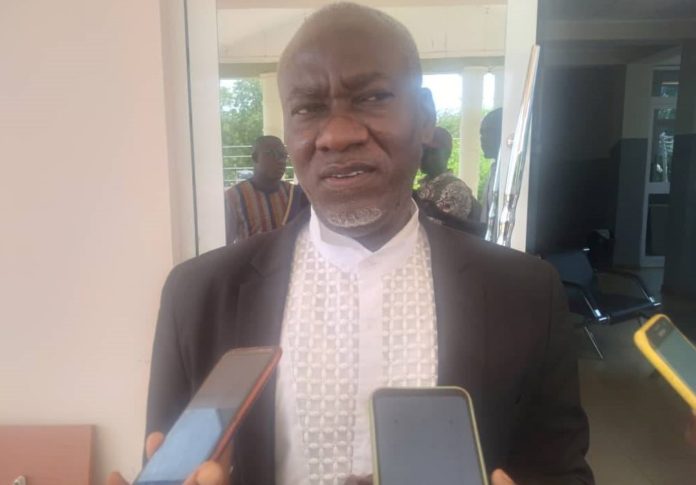Upper East Regional Director of the Commission on Human Rights and Administrative Justice has explained why a child abuse case involving a self-styled pastor and 5 of his congregants including his wife lasted just about an hour in court.
Head Pastor of Jesus Spanner Miracle Church, Kwabena Atogpeelige Akongeyaane, his wife, Mary Akongeyaane and 4 members of his church were on Friday arrested by police after a video showing an infant being manhandled at his church in the name of spiritual fortification emerged on social media.
They were, subsequently on Monday, arraigned before a Bolgatanga District Court on charges of physical abuse of a child and abetment of crime (to wit physical abuse of a child).
But no sooner had the case commenced than the judge passed a ruling on the matter.
All the 6 pleaded guilty when the charges were read to them and were convicted on their pleas and accordingly, sentenced.
Explaining the turn of events on State of Our Nation, the Regional Director of CHRAJ, Abdulai Jalaldeen said the case did not travel its full length because it is a misdemeanour and does not attract capital punishment.
According to him, once an accused in a non-indictable case pleads guilty like the 6 did, the judge has no option than to convict them on their own plea.
“When it is a summary trial just like what we have had today which is just a misdemeanour then once you plead guilty simplicity, then you’re convicted on your own plea and sentencing follows,” he explained.
But in the case of a felony, he indicated, the judge would have been required to enter not guilty and allow the matter to run its full course regardless of their guilty plea.
“if it was a serious offense like murder, irrespective of your plea, if you say you plead guilty but the judge ought to enter not guilty for you be tried”.
He noted that because felony cases are grievous and attracts severe punishment, the court is always cautious not to convict suspects merely on their pleas but to allow a full prosecution of the matter.
This, he explained, is to ensure that all perpetrators are fished out to face the full rigours of the law and that no innocent person is made to suffer for a crime they have no hand in.
“For a crime like murder, the punishment is for you to also die, so they don’t want a situation where a wrong person will also be made to die. So in the event that somebody has committed murder and another person wants to hide other people’s identity, the person could enter and plead guilty to cover all the other perpetrators.
But if you have played any role towards the murder, at least, you should be fished out and be dealt with. So that’s one of the reasons why if you plead guilty, but the judge will have to enter not guilty for you be tried,” he explained.




